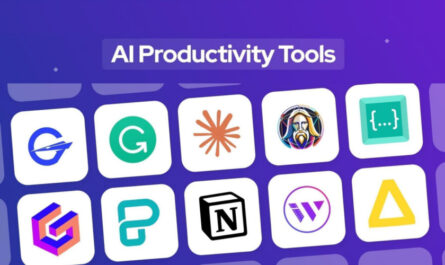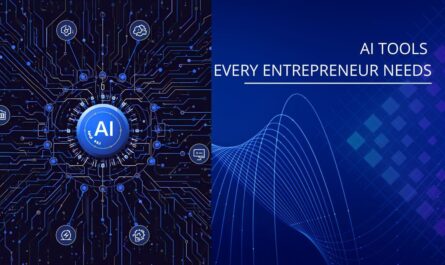In today’s fast-paced digital world, data drives every marketing strategy. But with endless analytics, audience insights, and content tools, it’s easy to feel overwhelmed. That’s where AI marketing tools come in. These advanced platforms use artificial intelligence to automate tasks, optimize campaigns, and uncover data-backed insights that human marketers might miss. Whether you’re managing a startup or a global brand, AI can help you make faster, smarter marketing decisions—and ultimately save time and money.
Why AI Is Transforming Marketing Strategy
Modern marketers deal with a massive amount of data from social media, email campaigns, and ad platforms. Analyzing it manually takes time and often leads to missed opportunities. AI marketing tools simplify this by processing huge datasets in seconds. They identify trends, predict customer behavior, and even suggest the next best action.
For example, AI can determine which type of ad copy performs best for a specific audience or which time of day is ideal for sending email newsletters. This data-driven decision-making helps marketers create content that resonates more effectively with potential customers.
1. Smarter Audience Targeting
Understanding your audience is at the core of effective marketing. AI marketing tools analyze demographics, behaviors, and preferences to segment audiences automatically. Instead of manually creating lists, you can rely on AI-powered insights to deliver personalized experiences.
For example, tools like HubSpot Marketing Hub use machine learning to personalize website content and email campaigns. AI identifies patterns and predicts which type of content will engage each segment best—whether it’s video, blog posts, or product promotions.
2. Predictive Analytics for Smarter Campaigns
Predictive analytics is one of the most valuable features of AI marketing tools. It uses historical data to forecast future trends, helping marketers make better strategic decisions. For instance, AI can predict which customers are most likely to make a purchase or which leads need more nurturing.
Platforms like Salesforce Einstein provide predictive scoring that helps prioritize leads and tailor content for higher conversions. This type of automation ensures marketing teams invest time where it truly matters.
3. Automated Content Creation
Creating content consistently can be challenging. Thankfully, AI can help. Many AI marketing tools generate blog posts, social media captions, and ad copy that align with your brand’s tone and objectives. AI content assistants like Jasper and Copy.ai have become go-to resources for marketers who need quick, engaging copy that performs well.
These tools don’t replace human creativity but enhance it. You can use AI to handle repetitive writing tasks, freeing time for creative strategy and storytelling that connects with your audience.
4. Enhanced Ad Optimization
Pay-per-click (PPC) advertising platforms like Google Ads already rely heavily on AI for performance optimization. However, advanced AI marketing tools go even further by analyzing ad metrics in real time. They automatically adjust bids, target new audience segments, and test ad variations to maximize ROI.
Using an AI-powered platform such as Google Ads Smart Campaigns ensures that your marketing budget is spent wisely, while AI tools like Adzooma provide insights into what’s working and what needs improvement.
5. Better Customer Insights
AI goes beyond numbers—it provides a deeper understanding of your customers’ emotions and motivations. Natural language processing (NLP) enables AI marketing tools to analyze comments, reviews, and social media posts to detect sentiment. This helps brands understand how customers feel about products or services and respond accordingly.
For example, tools like Sprout Social and Brandwatch use AI to monitor brand mentions and analyze public sentiment. Marketers can quickly identify customer concerns, emerging trends, or opportunities for engagement.
6. Chatbots and AI-Powered Customer Support
AI chatbots have revolutionized how businesses interact with their customers. They provide instant responses, resolve issues, and even recommend products—all without human intervention. Integrating chatbots into your website or social channels ensures 24/7 engagement, which boosts satisfaction and conversion rates.
Platforms such as Intercom and Drift use AI to deliver personalized conversations that feel human-like. These AI marketing tools not only improve customer experience but also collect valuable data that can refine your marketing strategies.
7. Social Media Management and Automation
AI helps marketers manage multiple social platforms effortlessly. From scheduling posts to analyzing engagement data, AI-driven social tools ensure consistency and growth. Tools like Buffer and Hootsuite now integrate AI to recommend optimal posting times, content formats, and hashtags for maximum reach.
These insights let you focus on building brand identity rather than spending hours tracking performance manually. Combined with analytics dashboards, AI provides a complete view of how social campaigns impact your overall marketing goals.
8. Personalized Customer Experiences
Personalization is no longer optional—it’s expected. With AI marketing tools, brands can tailor experiences for each individual. AI tracks user behavior across websites, emails, and social media to deliver hyper-personalized content and offers.
For instance, AI-driven recommendation engines like those used by Netflix and Amazon show users content and products they’re most likely to enjoy. You can apply the same principles to your marketing by using AI personalization platforms to improve customer journeys.
9. Boosting ROI with Automation
Manual marketing processes often waste time and resources. AI marketing tools automate repetitive tasks like reporting, lead scoring, and segmentation, allowing your team to focus on creativity and strategy. Automation leads to faster decision-making and higher returns.
In addition, integrating AI with your CRM can give your team a 360° view of every customer. That helps you identify upselling opportunities and fine-tune your campaigns for maximum profitability.
10. Choosing the Right AI Marketing Tools
When selecting the best AI marketing tools, consider your goals. Do you need content creation, analytics, or customer support automation? Each tool offers unique strengths, so start by identifying where your marketing process needs improvement.
For example, if you want to automate email marketing, tools like Mailchimp are a great choice. For deeper insights into your campaign performance, consider AI analytics tools like PaveAI or Google Analytics 4. Testing different platforms can help you discover which combination works best for your business.
Final Thoughts: Embrace AI for Smarter Marketing Decisions
The future of marketing belongs to those who can combine creativity with data intelligence. AI marketing tools empower brands to analyze information faster, predict trends more accurately, and deliver personalized experiences that build loyalty. By adopting these tools, you can transform your marketing from guesswork into precision strategy.
Want to explore more about how AI is changing online business? Check out our guides on digital marketing strategies (example.com) and AI business trends (example.com) to take your campaigns to the next level.


